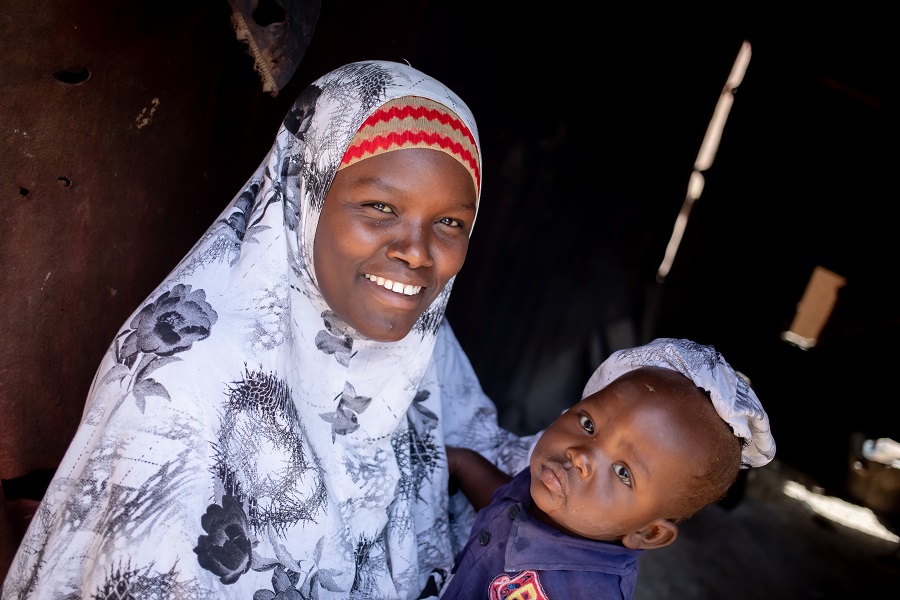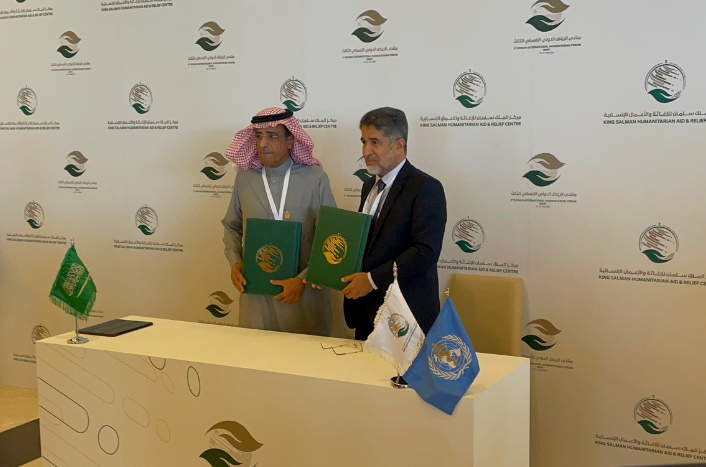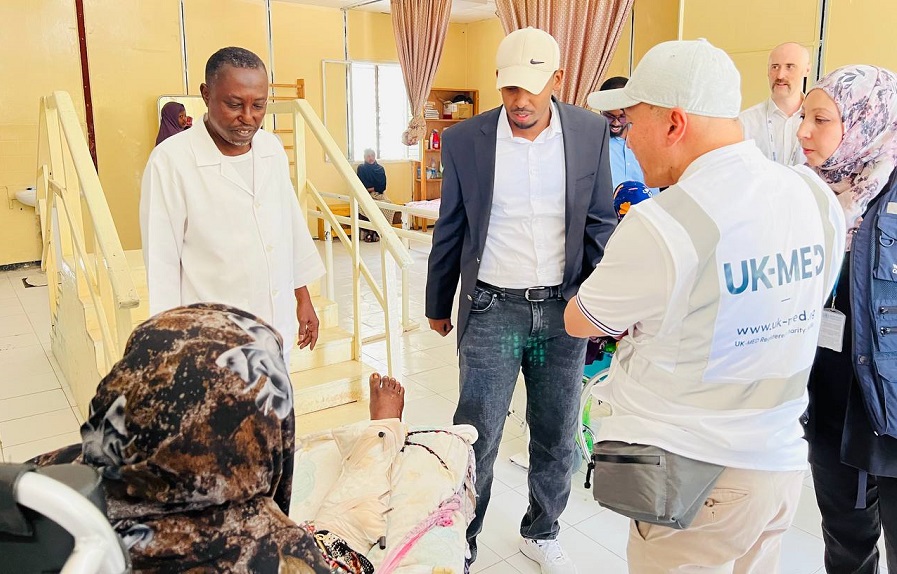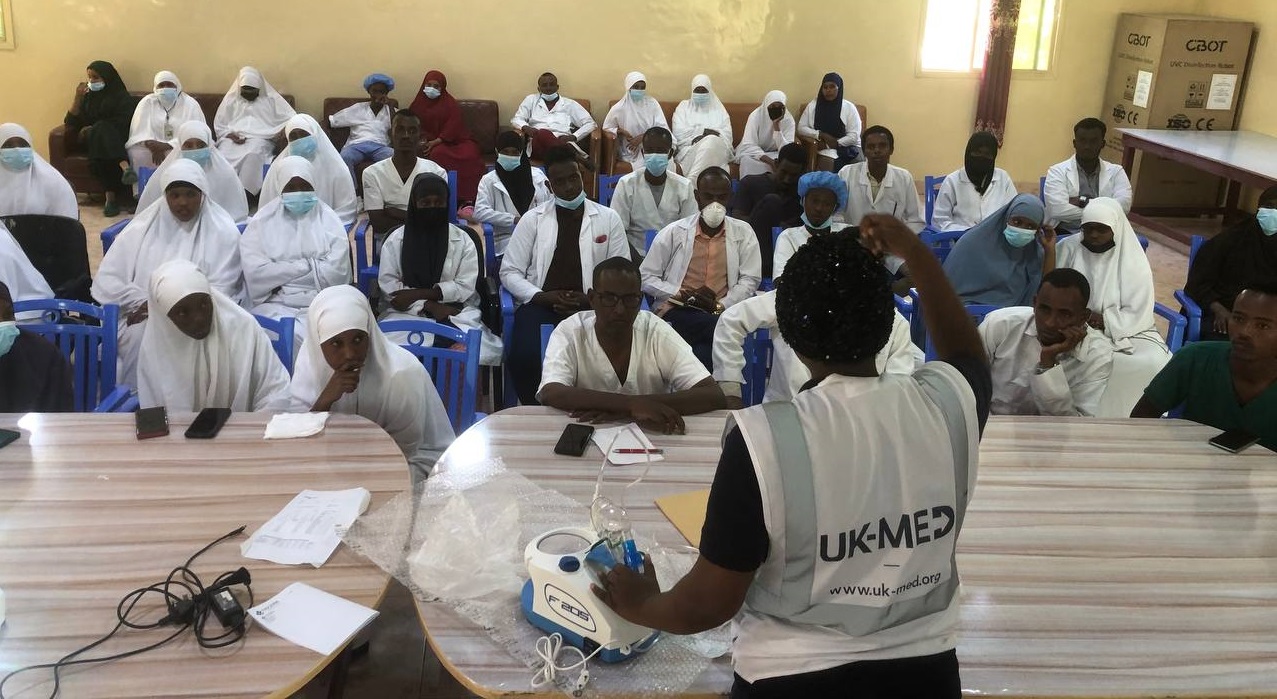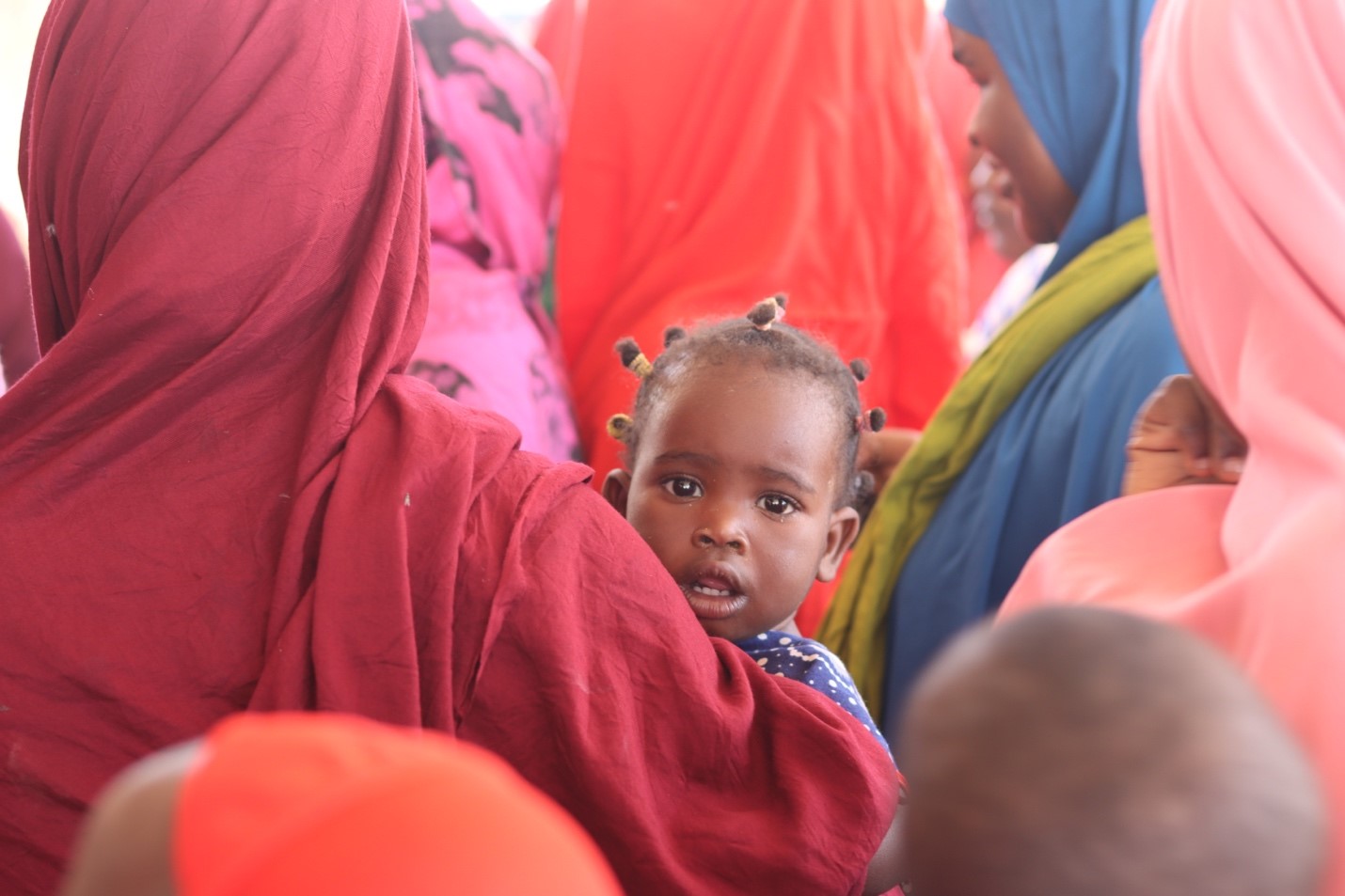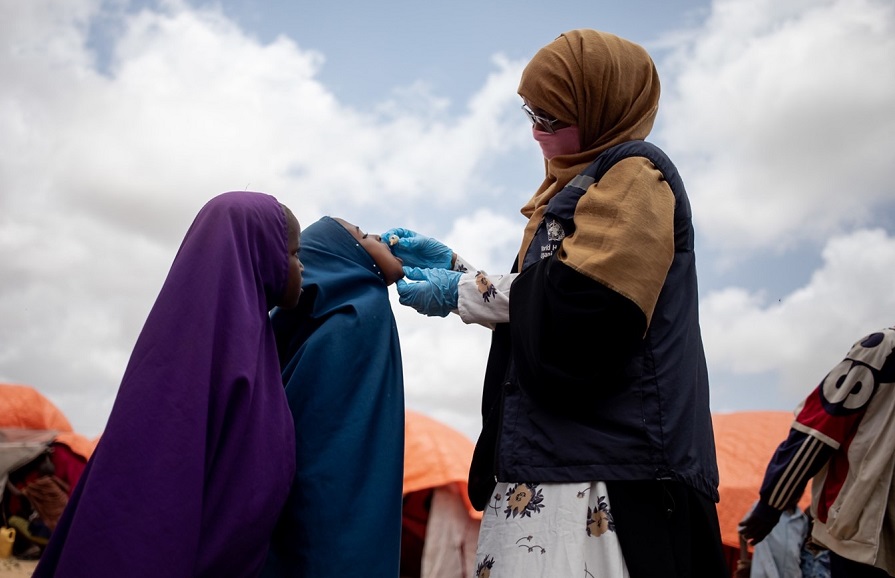Half of the drought-related deaths occurred among children under the age of 5
Mogadishu, 20 March 2023 – A new report released today by the Federal Ministry of Health & Human Services, WHO and UNICEF suggests that an estimated 43 000 excess deaths may have occurred in 2022 in Somalia due to the deepening drought, a figure higher than that of the first year of the 2017–2018 drought crisis. Half of these deaths may have occurred among children under the age of 5.
The findings of the report were released today by the Minister of Health of the Federal Government of Somalia, Dr Ali Hadji Adam Abubakar, in the presence of Mr Adam Abdelmoula, Deputy Special Representative of the Secretary-General and United Nations Resident and Humanitarian Coordinator for Somalia, Ms Wafaa Saeed, UNICEF Country Representative of Somalia and Dr Sk Md Mamunur Rahman Malik, WHO Representative for Somalia.
For the first time, a scenario-based forecast model was developed from the same study to enable anticipatory action and avert drought-related deaths. The forecast, spanning January to June 2023, estimates that 135 people might also die each day due to the crisis, with total deaths projected to fall between 18 100 and 34 200 during this period. These estimates suggest that, although famine has been averted for now, the crisis is far from over and is already more severe than the 20172018 drought crisis.
These figures are derived from a statistical model which estimated that the crude death rate increased across Somalia from 0.33 to 0.38 deaths per 10 000 person-days over the period January–December 2022; the rate in children younger than 5 years was nearly double these levels. For 2023, the crude death rate is forecasted to reach 0.42 deaths per 10 000 person-days by June 2023.
Commissioned by the UNICEF Regional Office and WHO Somalia country office and carried out by the London School of Hygiene and Tropical Medicine and Imperial College London, the study presents retrospective estimates of mortality across Somalia from January to December 2022. The highest death rates were estimated to have occurred in south-central Somalia, especially the areas around Bay, Bakool and Banadir regions, the current epicentre of the drought.
The study, the first in a planned series, received support from the Federal Ministry of Health & Human Services of the Federal Government of Somalia and the Food Security and Nutrition Analysis Unit of the Food and Agriculture Organization of the United Nations, and was funded by the Foreign, Commonwealth & Development Office of the United Kingdom.
While releasing the findings of the report, Minister Dr Ali Hadji Adam Abubakar commented:
“We continue to be concerned about the level and scale of the public health impact of this deepening and protracted food crisis in Somalia. At the same time, we are optimistic that if we can sustain our ongoing and scaled-up health and nutrition actions and humanitarian response to save lives and protect the health of our vulnerable, we can push back the risk of famine forever, else those vulnerable and marginalized will pay the price of this crisis with their lives. We, therefore, urge all our partners and donors to continue to support the health sector in building a resilient health system that works for everyone and not for the few. Building a healthier and happier world for all Somalis remains at the heart of our government.”
WHO Representative Dr Mamunur Rahman Malik, commenting on the study findings, said that:
“We are racing against time to prevent deaths and save lives that are avoidable. We have seen, deaths and diseases thrive when hunger and food crises prolong. We will see more people dying from disease than from hunger and malnutrition combined if we do not act now. The cost of our inaction will mean that children, women and other vulnerable people will pay with their lives while we hopelessly, helplessly, witness the tragedy unfold.”
Dr Malik added that:
“From the very beginning of this drought, WHO has clearly stated that the drought is a health crisis as much as it is a food and climate crisis. WHO’s main concern has been to prevent excess deaths directly or indirectly attributed to drought with a special focus on women and children under 5. As such, WHO has stepped up its life-saving integrated health interventions throughout 2022 and would continue to do so in 2023 to avert every preventable death in Somalia.”
“These results present a grim picture of the devastation brought on children and their families by the drought,” said UNICEF Representative Wafaa Saeed.
“We are saddened by these deaths, and we know there could have been many more deaths had humanitarian assistance not been scaled up to reach affected communities. We must continue to save lives by preventing and treating malnutrition, providing safe and clean water, improving access to life-saving health services, immunizing children against deadly diseases such as measles and providing critical protection services.”
Somalia is enduring five consecutive seasons of failed rains, the longest in recent memory, which has left 5 million people in acute food insecurity and nearly 2 million children at risk of malnutrition. The United Nations needs more than US$ 2.6 billion to meet the priority needs of 7.6 million people in 2023.
Note to Editors:
The current drought crisis in Somalia is unfolding against an already grim backdrop. With nearly half of the population (7.9 million) in need of humanitarian assistance, the situation is exacerbated by climate change-induced extreme weather, political instability, ethnic tensions and insecurity, which continue to worsen public health and nutrition concerns. Six consecutive failed rainy seasons have caused the drought, which coincides with rapidly increasing global food prices, intensification of insecurity in some regions and the socioeconomic aftermath of the COVID-19 pandemic. As with previous complex crises, it has been accompanied by large movements of internally displaced persons (IDPs) (3.5 million recorded by humanitarian actors). In the context of this latest crisis, the London School of Hygiene and Tropical Medicine was commissioned by WHO and UNICEF to produce both retrospective and forecasting estimates of overall and crisis-attributable excess mortality across Somalia and suggest action points.
A summary of the report can be downloaded here.
For additional information, please contact:
Ministry of Health and Human Services, Federal Republic of Somalia:
Cette adresse email est protégée contre les robots des spammeurs, vous devez activer Javascript pour la voir.
Cette adresse email est protégée contre les robots des spammeurs, vous devez activer Javascript pour la voir.
UNICEF
Victor Chinyama
Cette adresse email est protégée contre les robots des spammeurs, vous devez activer Javascript pour la voir.
+252 613 375 885
WHO:
Fouzia Bano
Cette adresse email est protégée contre les robots des spammeurs, vous devez activer Javascript pour la voir.
Kyle De Freitas
Cette adresse email est protégée contre les robots des spammeurs, vous devez activer Javascript pour la voir.





